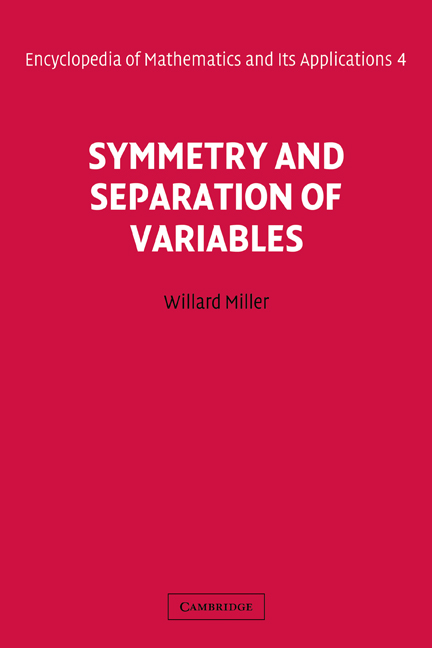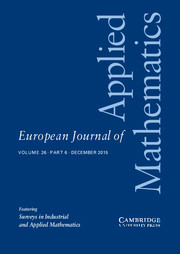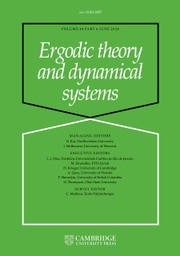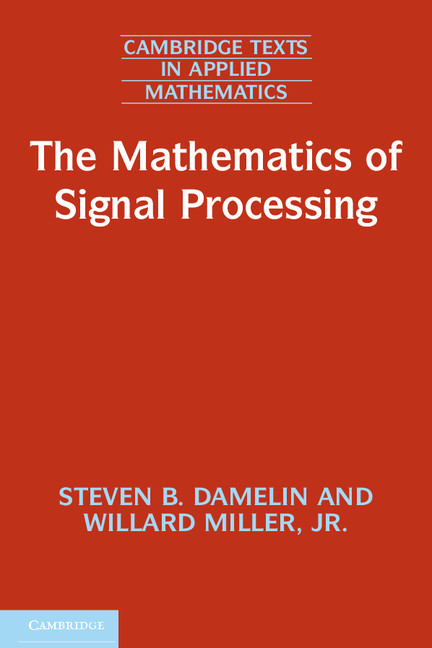Symmetry and Separation of Variables
Originally published in 1977, this volume is concerned with the relationship between symmetries of a linear second-order partial differential equation of mathematical physics, the coordinate systems in which the equation admits solutions via separation of variables, and the properties of the special functions that arise in this manner. Some group-theoretic twists in the ancient method of separation of variables that can be used to provide a foundation for much of special function theory are shown. In particular, it is shown explicitly that all special functions that arise via separation of variables in the equations of mathematical physics can be studied using group theory.
Reviews & endorsements
Review of the hardback: ' … an important step in the group-theoretic approach to special functions. It is clearly written and should be accessible to a broad spectrum of readers'. Mathematical Reviews
Product details
July 2013Adobe eBook Reader
9781107107854
0 pages
0kg
This ISBN is for an eBook version which is distributed on our behalf by a third party.
Table of Contents
- Editor's statement
- Section editor's statement
- Preface
- 1. The Helmholtz equation
- 2. The Schrödinger and heat equations
- 3. The three-variable Helmholtz and Laplace equations
- 4. The wave equation
- 5. The hypergeometric function and its generalizations
- Appendices
- References
- Index.











